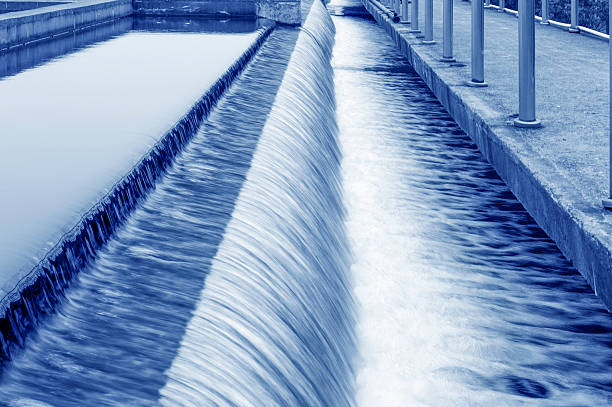Ever wondered what happens to industrial wastewater after production? The answer lies in the efficiency of modern effluent treatment plants. As industries expand, the need for reliable effluent treatment plant suppliers
has grown rapidly across India. Let’s explore how top providers are transforming waste management into sustainable innovation.
Understanding the Role of Effluent Treatment Plants
An effluent treatment plant (ETP) is more than just a piece of industrial equipment—it’s the heartbeat of environmental responsibility. These systems treat wastewater from industries like textiles, chemicals, pharmaceuticals, and food processing before it’s released into the environment. The goal? To remove toxic substances, neutralize contaminants, and ensure the water meets discharge standards set by the Central Pollution Control Board (CPCB).
Why the Right Provider Makes All the Difference
Choosing the right ETP provider can save companies not only from hefty environmental fines but also from reputation damage. The best effluent plant providers in India don’t just sell equipment—they design custom solutions tailored to each industry’s specific waste composition.
Here’s what top ETP providers usually offer:
- Customized Plant Design: Built to match flow rates, pollution loads, and site conditions.
- Advanced Technology Integration: Using biological, chemical, and membrane-based treatments for better output.
- Compliance Support: Helping industries meet environmental regulations with accurate documentation and testing.
- End-to-End Service: From installation to maintenance and performance audits.
Top Qualities That Define the Best Effluent Plant Providers
While there are many names in the Indian market, only a few stand out for their innovation and long-term results. When evaluating a provider, look beyond the equipment brochure. Consider how they think, build, and sustain.
1. Technological Adaptability
Modern effluent treatment relies on a mix of biological and physicochemical methods. Providers who adopt the latest innovations-such as Reverse Osmosis (RO), Moving Bed Biofilm Reactors (MBBR), or Zero Liquid Discharge (ZLD) systems-offer greater efficiency and cost savings.
2. Proven Industry Experience
Experience matters. Providers who’ve worked across multiple sectors—like dyeing, paper, and pharmaceuticals—bring a deeper understanding of complex effluent streams. Their plants are not just built for today’s needs but scalable for tomorrow’s growth.
3. Sustainability Commitment
Sustainability isn’t a buzzword anymore; it’s a compliance requirement. The best effluent plant providers design systems that minimize sludge generation, recover reusable water, and optimize energy use. According to UNEP, sustainable wastewater management could reduce industrial freshwater demand by up to 40%—a game changer for India’s resource future.
Key Benefits of Partnering with a Trusted ETP Provider
- Enhanced operational efficiency and water reuse capabilities.
- Reduced operational costs through optimized design and automation.
- Long-term compliance with pollution control standards.
- Improved corporate image through visible sustainability practices.
How to Choose the Best Effluent Plant Provider for Your Business
Here’s a quick checklist to help you make the right decision:
- Request detailed performance reports from existing clients.
- Ask about customization options based on your effluent composition.
- Ensure post-installation support and annual maintenance contracts.
- Verify technology certifications and adherence to CPCB or ISO standards.
FAQs About Effluent Treatment Plant Providers
1. What is the purpose of an effluent treatment plant?
An ETP treats industrial wastewater by removing pollutants and ensuring that the discharged water meets environmental safety norms.
2. How do I select the right effluent plant provider?
Choose a provider with experience in your industry, proven technology, transparent pricing, and reliable after-sales service.
3. What technologies are commonly used in ETPs?
Common systems include Activated Sludge Process (ASP), MBBR, RO, and ZLD. The right choice depends on the type and quantity of waste generated.
4. How often should an effluent treatment plant be maintained?
Regular preventive maintenance every 3–6 months ensures optimal performance and avoids costly downtime.
Final Thoughts
The demand for efficient wastewater management is only growing. With environmental laws tightening and sustainability becoming a brand value, partnering with a reputed effluent plant provider isn’t optional—it’s essential. Whether you’re setting up a new unit or upgrading an old one, choose a provider that understands both engineering and ecology.



